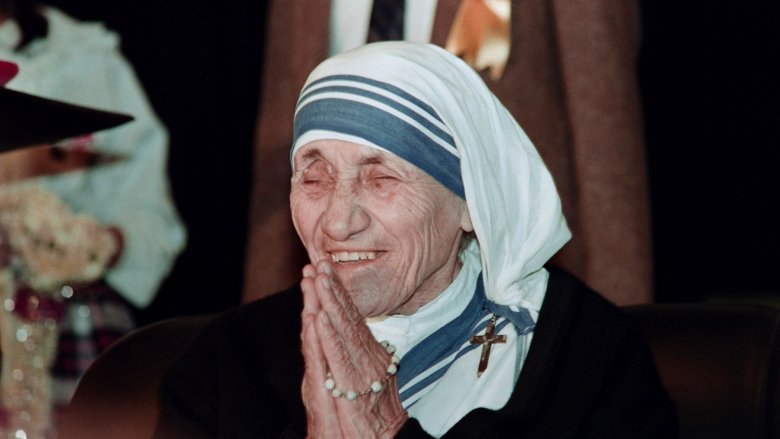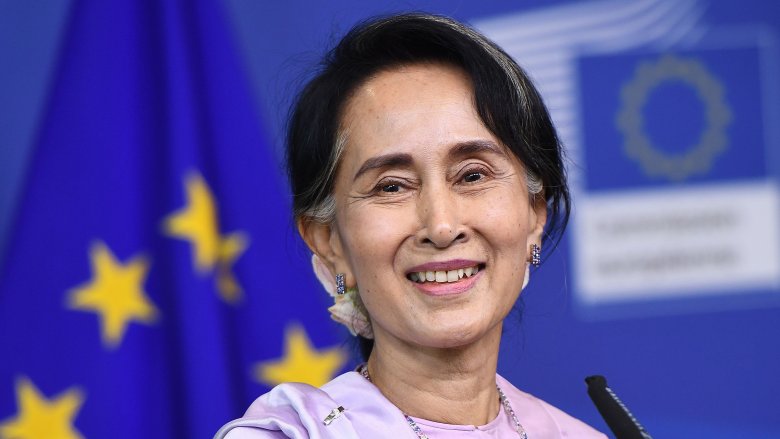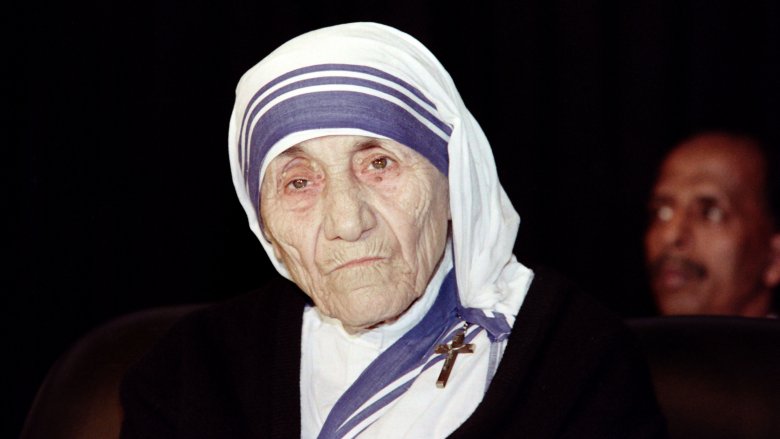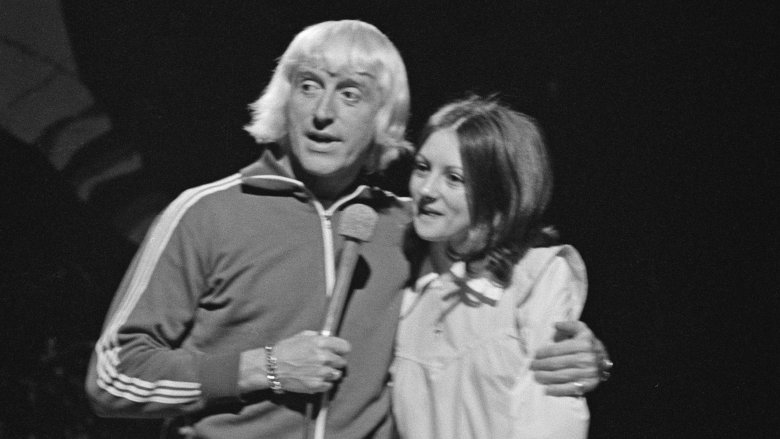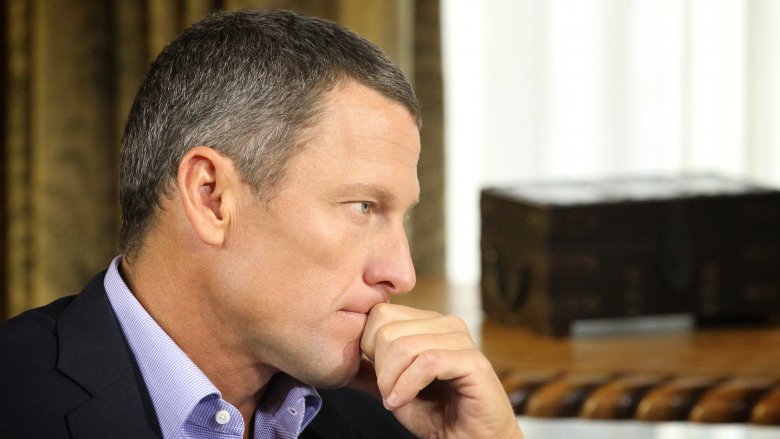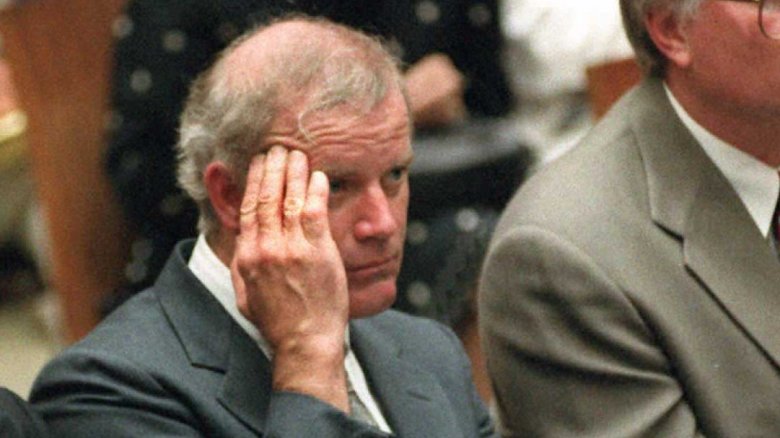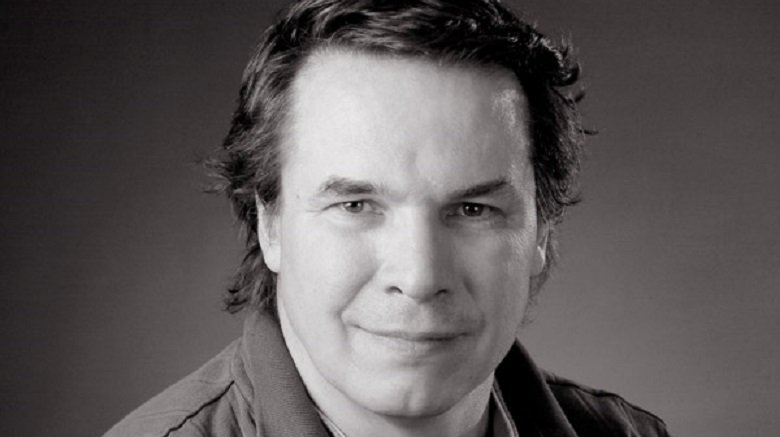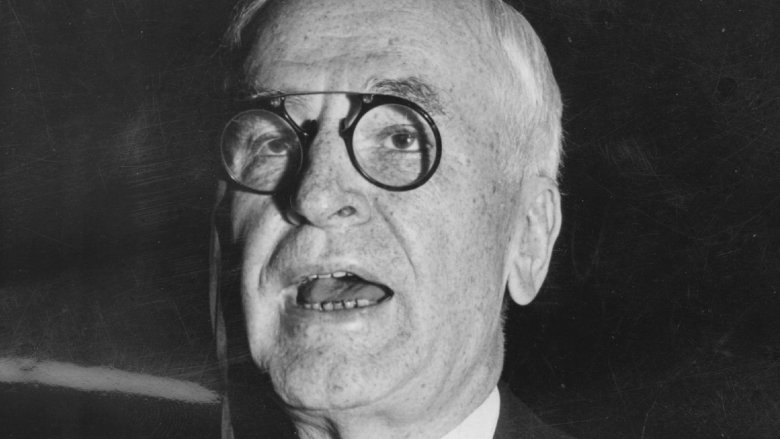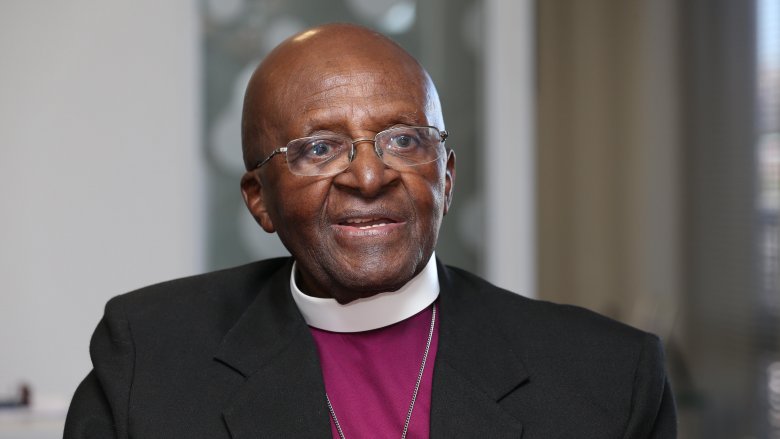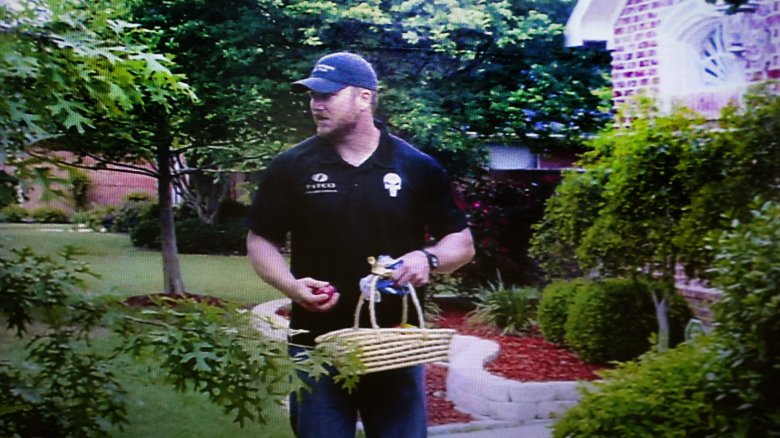Real-Life Heroes Who Are Actually Pretty Terrible People
In a scary world, where everything on the news seems to be bad all the time, it's so nice when a real-life hero emerges. There are some people out there who do selfless things most of us could never dream of. Day in and day out, they dedicate their lives to science, or charity, or just making the world a better place. Many people benefit directly from their actions, and we all benefit from knowing that we can be better, that deep down humanity is good.
And then they break your freaking heart because no person is perfect. Wait long enough and eventually that pedestal you put them on crumbles to dust. It hurts so much more than when it happens to your average famous person because you really believed they were inherently better. But even people who get the "hero" moniker can be as selfish and flawed as the rest of us normies.
Aung San Suu Kyi doesn't care about you if you can't vote for her
Myanmar's governmental structure is complicated. The military, which held an iron grip on the country for almost 50 years, still has huge power. And while Nobel Peace Prize winner Aung San Suu Kyi is in charge, her official title is State Councilor because the army previously made a law that she, specifically, could not be president. Still, after their first free elections in decades in 2015, Suu Kyi's party won in a landslide.
The New Yorker says Suu Kyi became politically active against the junta state and because of this was held under house arrest for 15 years. So when she got power, people had high hopes. But the Muslim minority Rohingya aren't thrilled. Some people in Myanmar don't like the Rohingya and see them as illegal immigrants, even those that have been there generations. And perhaps because they have no political power, Suu Kyi seems fine with the humanitarian disaster happening to them. The BBC reports that despite the ongoing rape, murder, and torture of the Rohingya by the military and civilians, as well as the tens of thousands displaced and in refugee camps fleeing violence, Suu Kyi has said, "I don't think there is ethnic cleansing going on. I think ethnic cleansing is too strong an expression to use for what is happening." Yes, semantics are the important part here.
Mother Teresa didn't really want to help poor people
Take a second to wrap your head around this one because, yeah, the Nobel Peace Prize winner and now-saint Mother Teresa was not all that saint-like when she was alive. The mission she ran in India had serious problems.
Salon talked to one volunteer there who said the hospital side of her mission relied on "reused needles, poorly trained staff, and expired medications" and was full of "abuse and neglect." One doctor saw a man with malaria being treated with Tylenol. Not surprisingly, people died unnecessarily. The author of a book about her legacy said patients were routinely "denied visitors, refused painkillers, and forced to shave their heads" and that if people knew the real Mother Teresa they would find her "repugnant."
This medical disaster didn't need to happen. Because of Mother Teresa's fame, the mission got hundreds of millions of dollars in donations. But it might have come down to her attitude: She is on record calling the suffering of the poor "beautiful" and believing the world was helped by it. Many experts think she wanted to "glorify" suffering, not relieve it.
But the issues didn't stop there. Among many other things, Christianity Today says in 1975 the government suspended all civil liberties in India, and Mother Teresa openly supported this move. Just what she did with all those millions in donations has also been called into question.
Jimmy Savile liked them way, way too young
If you grew up in Britain at a certain time, Jimmy Savile was your childhood hero. Even John Oliver has said how much he loved him. According to CNN, the radio DJ and TV personality had a show that ran for 20 years, where normal kids could write in (up to 20,000 a week at its peak) and he would make their wildest dreams come true. But adults had reason to like him as well. He was an ardent charity campaigner, personally raising more than £40 million for good causes. Even after he was a household name he still worked as a volunteer hospital porter. For being so seemingly amazing, he was given a knighthood. When he died in 2011 at the ripe old age of 84, the national mourning was intense.
...for a couple weeks. Then stories started coming out about just how unbelievably terrible Savile had actually been. It turned out he had a thing for underage girls and used his fame to get access to them. Many were assaulted on the BBC premises where he filmed his show and sometimes had appeared on TV with him. Even volunteering at that hospital had an ulterior motive. One brave woman came forward to say he had abused her in a corridor there when she was just 13. NBC News says police believe he had more than 300 victims, which would make him one of the country's worst known offenders.
Lance Armstrong wants to help you if you have cancer, hurt you if you are his teammate
When Lance Armstrong was at his peak, he seemed almost superhuman. He fought back from extremely aggressive cancer to win the Tour de France, one of the hardest sporting events in the world, a record seven times. At 26 he started a charity that would grow into the Livestrong Foundation, which has raised over $500 million to support cancer patients. (However, it also started the charity wristband fad, which is a lot to answer for.) Even the Post Office was made cooler by its connection to this sporting giant.
Then it all caught on fire, during an earthquake, while being hit by a wrecking ball, and everything came crashing down. It turned out Armstrong was getting help. Despite rumors swirling for years, the cyclist always swore he had never doped and pointed to all his clean drug tests to prove it. But that just meant he was smarter than the tests. And he could not stop lying. Even during his big televised confession to Oprah, he lied about being clean for part of his career. He lied to Oprah!
Armstrong's doping was just the tip of the cheating iceberg. The BBC reports the United States Anti-Doping Agency found him to be the ringleader of "the most sophisticated, professionalized and successful doping program that sport has ever seen." He had essentially "forced" his teammates to dope as well, "in large part to benefit [himself]." Yes, live strong.
Kary Mullis will save your life and blow your mind
Kary Mullis is an American biochemist whose work is literally saving lives. He invented polymerase chain reaction (PCR). The science behind it is very sciencey, but it has some amazing applications. It means people can be tested for genetic carriers, alerting them to problems before they even start. If you get cancer, PCR can be used to tailor your therapy, making it more effective. It's used in prenatal testing and has even improved organ donation. So Mullis is basically a hero who probably totally deserved that Nobel Prize in Chemistry they gave him in 1993.
But strangely for a scientist, he doesn't seem to believe in much science. For example, CNN says he has very publicly supported the work of virologist Peter Duesberg, who says AIDS is not caused by HIV. Instead, he believes people in Africa get AIDS because of "parasites, malnutrition, and poor sanitation," and that those outside Africa get it from long-term drug use.
Mullis also doesn't seem to understand climate change. According to Skeptical Science, he has said it isn't caused by humans since the climate was changing before humans existed. In one of his books (via the New York Times) Mullis wrote he totally believes in astrology, was rescued from a fatal accident by a person traveling in an astral plane, and once conversed with an alien disguised as a raccoon. He's also a fan of LSD, if you hadn't guessed. At least he invented PCR.
Greg Mortenson just wanted adoration and money
Greg Mortenson is an American philanthropist who set up the nonprofit Central Asia Institute and the educational charity Pennies for Peace, building schools for poor children in remote villages of Afghanistan and Pakistan. Then he wrote two books about how awesome he was. People seemed to buy it, literally, since his first book was a New York Times bestseller for 220 weeks. Even the Nobel Prize committee took notice and nominated him for the Peace Prize in 2009 and 2010, although he never won.
The problem was, so much of what he wrote was BS. 60 Minutes (as reported by the New York Times) did a segment proving he had made up some of the most dramatic events, and he even lied about the number of schools he had built. The Guardian says one particular story got him in trouble. Included in the book was a picture of Mortenson surrounded by armed tribesmen, who he claimed were Taliban members holding him captive. Instead, one of the men in the image came forward and said that in fact, they were holding guns to protect Mortenson when he stayed in their village and that he had "a really good time." The man threatened to sue for defamation.
Then there were the accusations Mortenson treated his nonprofits as "his personal ATM." He even used their funds to buy lots of copies of his book when it was knocked off the top spot of the bestseller list.
Cordell Hull wasn't a fan of Jewish refugees
Cordell Hull was U.S. Secretary of State from 1933-1944 and seems to have been pretty good at it. According to Encyclopedia Britannica, his term saw lots of important accomplishments, like lowering tariffs to help U.S. trade during the Great Depression and helping repair the damaged relationship between the U.S. and Latin America. But he is most known for his work with the United Nations. When the U.S. joined World War II, Hull realized that eventually the fighting would be over and the world would need a peacekeeping body. He was so instrumental in its creation that he is known as the "Father of the United Nations" and he won the Nobel Peace Prize for his work on it in 1945.
But Time says it was what he had done six years previously that was absolutely despicable. It was only months before war would officially break out in Europe, and a boat of 950 German Jews refugees set off seeking asylum in America. President Franklin Roosevelt was willing to help them, but Hull, for some reason, was totally against the idea. He used his considerable political power to get other politicians on his side, and they all threatened to withdraw support from FDR in the next election if he gave the Jews a home. The president caved under Hull's pressure, and the boat went back to Germany, where more than a quarter of the passengers would die in the Holocaust.
Desmond Tutu has a lot to say about Jews
Desmond Tutu is a former Anglican archbishop from South Africa. He was one of the country's most prominent anti-apartheid activists, stressing nonviolent protest. In 1984, he was awarded the Nobel Peace Prize for his work. On his 79th birthday, President Obama called him "a moral titan -– a voice of principle, an unrelenting champion of justice, and a dedicated peacemaker." Unless you happen to be Jewish.
The Jewish Press collected many of his comments about Jews, and seeing them all together is pretty shocking. Some of his opinions about Israel are merely controversial but still shared by many people today. But other things he has said are a lot more problematic and have even been labeled antisemitic.
He called for Jews to forgive the Nazis, while speaking at a Holocaust memorial. He has said that dying in the gas chambers made for "a neater death" than apartheid resettlement policies, that "Jews think they have cornered the market on suffering," and that they point out antisemitism because of "an arrogance of power." He's called members of the Jewish religion a "peculiar people" who "can't ever hope to be judged by the same standards which are used for other people." In 1987 he threatened that South African Jews would be punished if Israel kept dealing with the apartheid country, while, for some reason, staying silent on people of other nationalities.
Chris Kyle loved killing brown people
Chris Kyle is worshiped as a hero by many in America. He was a Navy SEAL, basically the most elite member of the military you can possibly be, and a sniper at that. He served four tours in Iraq, racking up an alleged 255 kills, 160 of which were confirmed by the Pentagon, making him the deadliest sniper in U.S. military history. After he retired he wrote his autobiography, which sold more than 1.2 million copies and was on the New York Times bestseller list for 37 weeks. He also threw himself into helping disabled veterans and those with PTSD. His murder at a gun range in 2013, and the release of a smash hit movie about his life the next year, made him a martyr and a celebrity.
But when you read Kyle's own words, you get a worrying picture of the guy. Disturbing quotes from his memoir appeared in The Guardian. He said he "loved" killing and that he found it "fun." He was positive that every single one of the hundreds of people he had killed was a "bad guy." He "couldn't give a flying f*ck about the Iraqis" who were "damn savages" that he "hated." It wasn't just Middle Easterners; he also claimed to have murdered looters during Hurricane Katrina (this has been called into question), yet bragged about how he looted apartments of Iraqi families in Fallujah.
The stuff he writes comes across as so racist and dehumanizing that one journalist called him an "American psycho."
